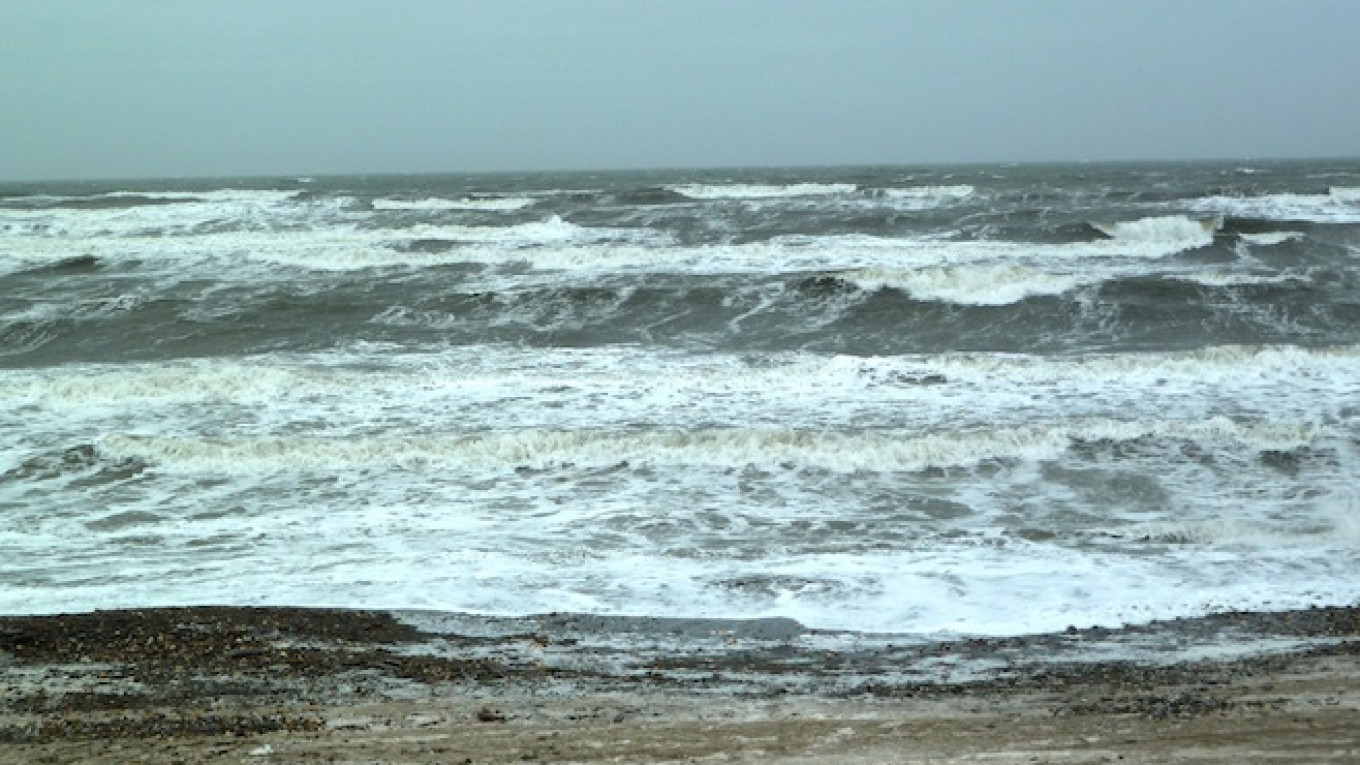SEOUL — Rescuers searched Monday for more than 50 people missing after a South Korean fishing ship they were working on sank amid high waves in the freezing waters of the Bering Sea near Russia, officials said. At least one person died.
Authorities rescued seven crew members and recovered one body, but weather and water conditions were complicating the search for the others, an official from the South Korean fisheries and oceans ministry said on condition of anonymity because of office rules.
The crew included 35 Indonesians, 13 Filipinos, 11 South Koreans and one Russian inspector, the official said. Russian authorities said there were 62 people aboard the ship, which sank in the western part of the Bering Sea.
The South Korean ministry official said it's believed that the ship, which was catching pollock, began to list after stormy weather caused seawater to flood its storage areas. The official said the 2,100-ton ship was 35 years old.
The South Korean foreign ministry said it asked Russian officials to work quickly to rescue the other crew members.
Authorities in the Russian port of Petropavlovsk-Kamchatsky said the rescued fishermen were well and would be taken to South Korea once the weather improves.
"The condition of the fishermen who were rescued is fine," Artur Rets, chief of the rescue center at the Petropavlovsk-Kamchatsky port, told the RIA Novosti news agency. "They are currently on the ship that rescued them. They will stay there until the weather improves and South Korea decides how to get them out of here. In the likeliest scenario, they will be picked up by a Korean vessel that is out fishing nearby."
Rets said the rescue operation was ongoing.
Kim Kang-ho from Sajo Industries, which owns the ship, said it left for the Bering Sea from a port in Busan, South Korea, on July 10. Kim said there are five South Korean-owned ships currently fishing in the Bering Sea to catch pollock, a winter delicacy in South Korea.
Another official from Sajo, who didn't want to be named, said the ship had eight lifeboats and that the seven fishermen who survived and the person later found dead used one of them to escape. The captain of the ship had issued an escape order and it was believed that the rest of the crew also attempted to escape, he said.
At the time of the sinking, the waves were more than four meters high and the water temperatures were below negative-10 degrees Celsius, he said.
Russia allows South Korean fishermen to fish in its waters for pollock, cod, Pacific saury, squid and other fish. In a meeting in April in Seoul, the two countries agreed to set this year's quota for pollock fished in Russian waters at 40,000 tons, according to a fisheries ministry official.
A Message from The Moscow Times:
Dear readers,
We are facing unprecedented challenges. Russia's Prosecutor General's Office has designated The Moscow Times as an "undesirable" organization, criminalizing our work and putting our staff at risk of prosecution. This follows our earlier unjust labeling as a "foreign agent."
These actions are direct attempts to silence independent journalism in Russia. The authorities claim our work "discredits the decisions of the Russian leadership." We see things differently: we strive to provide accurate, unbiased reporting on Russia.
We, the journalists of The Moscow Times, refuse to be silenced. But to continue our work, we need your help.
Your support, no matter how small, makes a world of difference. If you can, please support us monthly starting from just $2. It's quick to set up, and every contribution makes a significant impact.
By supporting The Moscow Times, you're defending open, independent journalism in the face of repression. Thank you for standing with us.
Remind me later.






